We’re excited to introduce you to the always interesting and insightful Michael Izzard. We hope you’ll enjoy our conversation with Michael below.
Michael, appreciate you joining us today. Do you take vacations? Why or why not?
I don’t take vacations generally speaking. I suppose taking a vacation isn’t an option as an entrepreneur, at least initially; getting a business off of the ground is a sacrificial endeavor. The idea of work-life balance shouldn’t be what is sought – work is love in the case of the entrepreneur as you’re an obligated provider to your employees, customers and purveyors. Similar I imagine to being a parent, the job doesn’t end. Speaking for myself, I wouldn’t want it any other way. There is an impact it will have on a personal life of course, which is why seeking the right people by whom to be surrounded, who understand the process and will support you along a journey is paramount. Your relief, your vacation is the fortunate circumstance that things might pan out as even slightly expected.
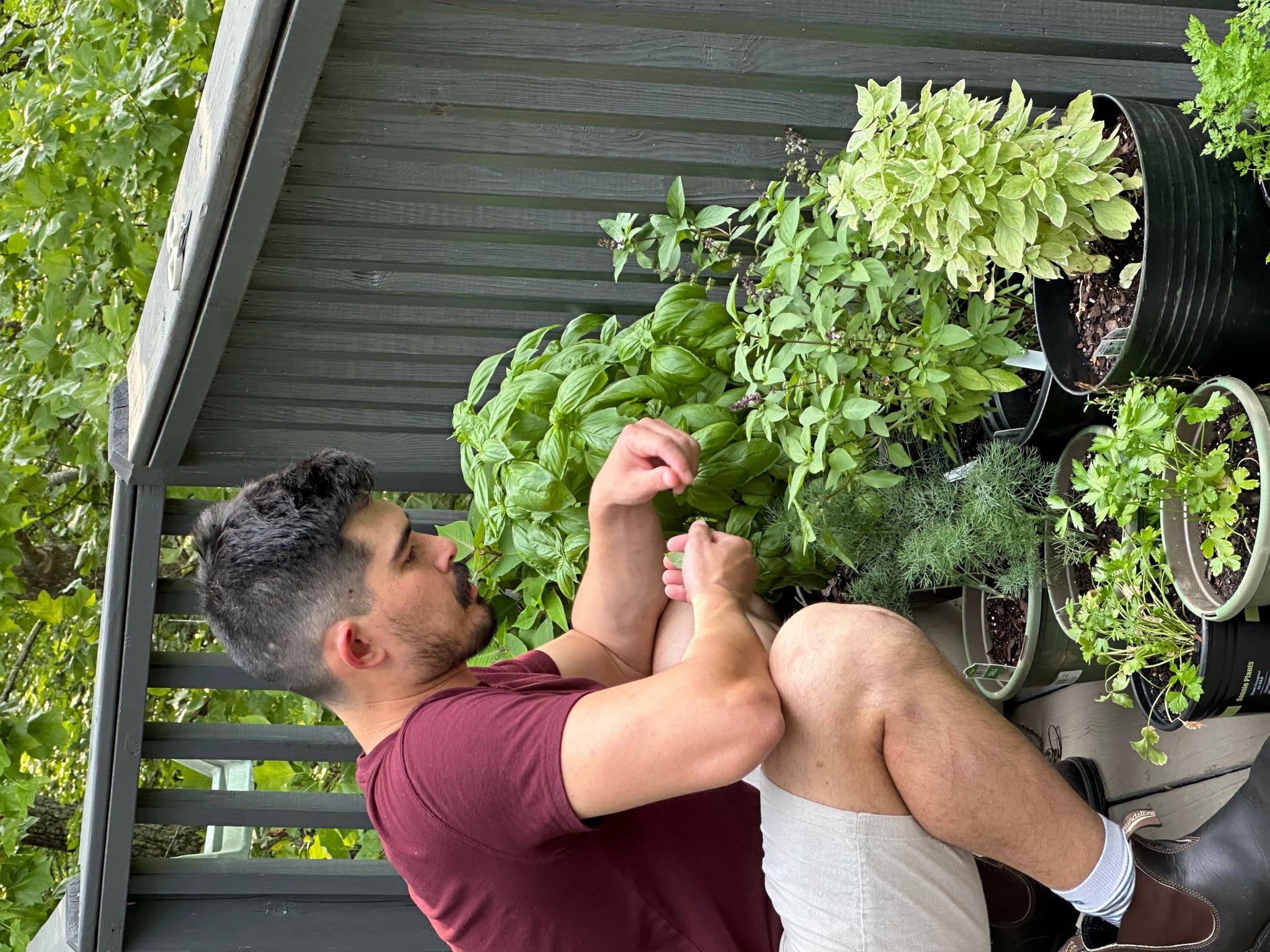
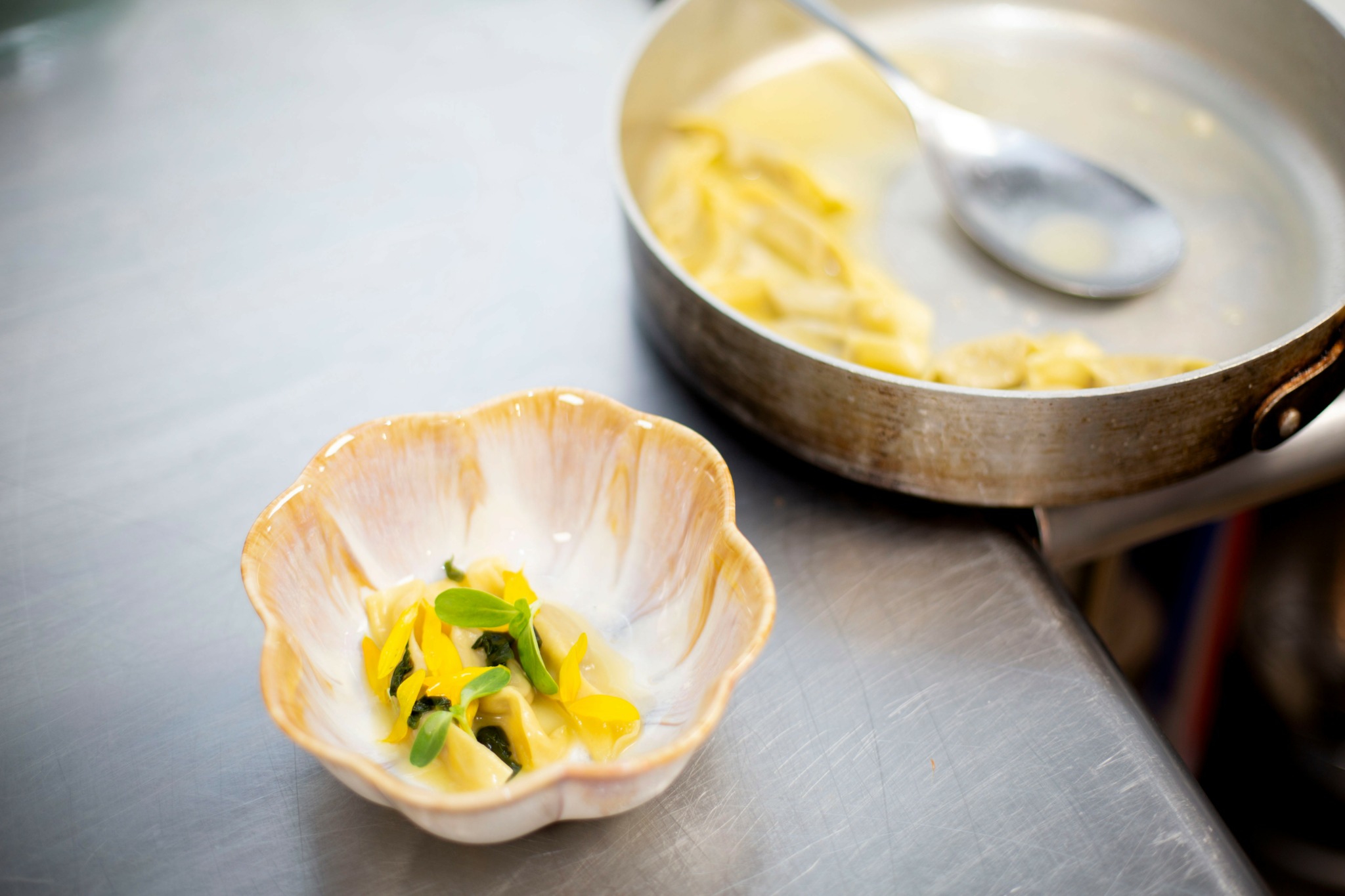
Great, appreciate you sharing that with us. Before we ask you to share more of your insights, can you take a moment to introduce yourself and how you got to where you are today to our readers.
I was born in Manila, Philippines before moving to Tucson, Arizona with my parents at the age of 4. After some years of back and forth, I finished my high school career in Tucson where my focus was split between several interests – tennis, writing and cooking. I never planned to cook professionally early on despite spending my childhood fixated on it, as conjunctly, tennis was a love that I hoped to turn into a playing career, and writing followed suit. After high school, I made the immediate move to Lausanne, Switzerland to pursue a business degree with side hustles of bartending, playing tennis and continuing to write fiction. Cooking for me at the time did not manifest outside of preparing the occasional dinner for friends; lasagnas on Thursday nights, the occasional duck breast to impress a date, but doing it full time was an afterthought. After my first year in Switzerland, I made a 9 month trip to Fez, Morocco where I undertook a job as an F&B manager at a small Riad in the heart of the old town Medina – I was 19 at the time and embellished my way into the position. I returned to Switzerland for another year before some personal difficulties brought me back state side.
There was a quandary of what to do next. Continuing school was not a feasible option then, and tennis and writing, despite making them more than a lifestyle, weren’t going along as planned. As it stood, cooking it was. In a similar pursuit of competitive spirit and jumping into things head first, at 21 years old I applied to every 2 and 3 Michelin star restaurant in the country despite never having worked as a cook before. I miraculously got picked up by 2 Michelin Star Acquerello in San Francisco’s Nob Hill district where I spent close to two arduous years working for Suzette Gresham, learning what being a cook at that level entails. After working my way up to Junior Sous Chef there, I set my sights up north to Napa Valley and continued developing at the 3 Michelin Star Restaurant at Meadowood, working my way up to the Fish Station lead for another 2 years under Christopher Kostow.
There was a hiatus for a time, another pursuit of athletic endeavors and among other things, I tried to pursue a military career, attempted another potential career in tennis both of which were cut short by severe injuries. I had stepped away from cooking which is something that pervades the F&B scene quite often. The ardor that sprouted from cooking those previous 4 years never waned, but still in some ways competed with the other lifestyles I enjoyed. And again, when things didn’t work out, cooking still had my back and it was then I made a realization – passion doesn’t exist in blue collar work. What people mistake for passion is competence, becoming adept, eventual mastery and realizing that one’s efforts in a thing may in fact give back more than you ever put in. It had given me a life. And with that I thrust myself back into cooking with head down commitment, with a vision that one day I too could give back more than I take however that might manifest.
I found myself at the Harbor House Inn in 2021, a still under the radar restaurant in coastal Elk, California – a town of 250, three and a half hours north of San Francisco. I capriciously began to work there not realizing that this would be the most impactful move in my life. It was our kitchen crew of 4, led by Matthew Kammerer, that moved the restaurant from 1 to 2 Michelin stars that September. I then continued on at Izakaya Gama, just 20 minutes south of Elk in Point Arena, CA – an intimate high level Japanese Yakitori restaurant opened by the previous Sous Chef of the Harbor House Inn, David Hopps.
I made the move to South Carolina in early 2024 to be closer to my parents who had moved to Landrum some years back. After spending what was 8 years cooking at the Michelin level in the gamut of Northern California, I felt ready to begin my own career as a restaurant owner. I started my project LolaCeli in April of 2024, a seafood and vegetable forward pop-up incorporating Filipino influences. My obsession with fermentation, long term processes of meat and fish aging, and using nuanced seasoning as focal points, perfume the cuisine. My faceted experience is also evident – there is always a pasta course, some Moroccan flavors may appear, highlights of local foraged and cultivated fauna are always used, and so on. My style also pays homage to my Filipino heritage, in which about half of the menu is elementally Filipino in ethos. There isn’t much dairy usage, and luxury ingredients are nowhere to be found on any menu we create. The focus is on technique and spending the time on humble ingredients to maximize their inherently delicious qualities on a 10-12 course menu. The protocol is imbued similarly for pairings, with carefully selected wines and sakes. Long term, I hope to bring something new to Greenville that is missing. Pop-ups appear 3 or 4 times a month at various locations around the city.
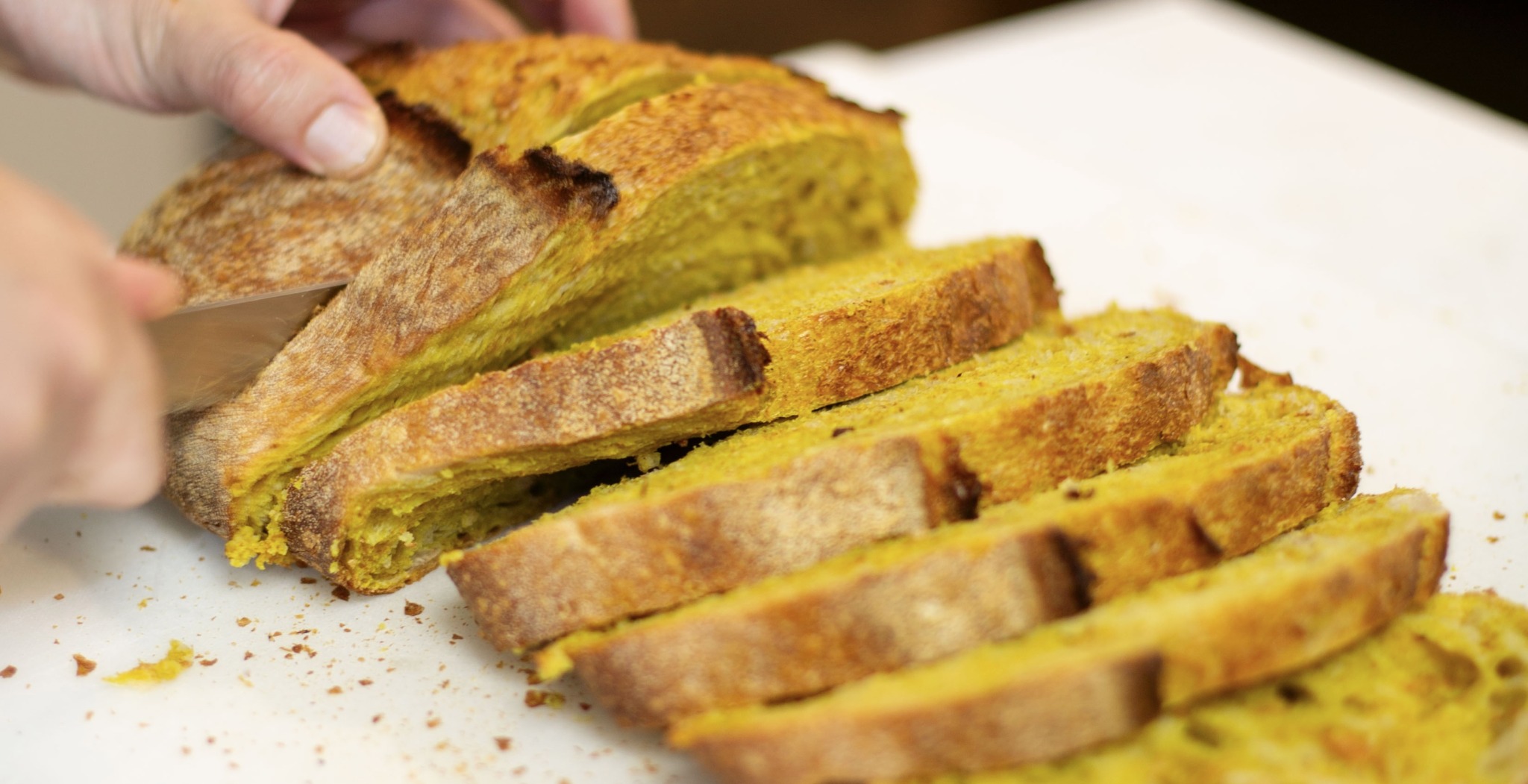
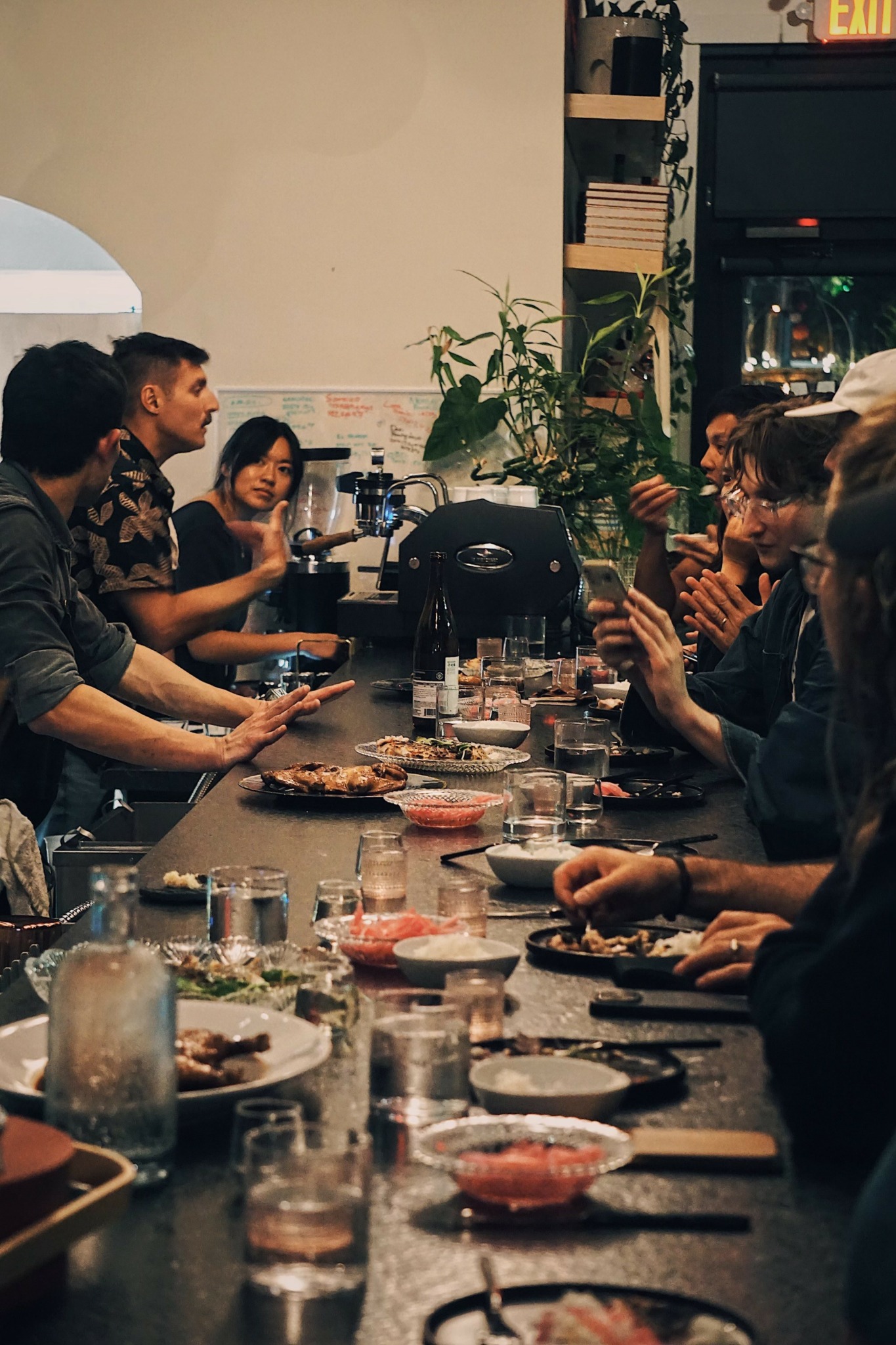
Let’s talk about resilience next – do you have a story you can share with us?
I spent most of my twenties driven by ego. It’s not the healthiest thing, and the universe ultimately lets you know that. My conjunct adherence to athletic goals speak more to portrayals of resilience I would say rather than my professional endeavors, in which my greatest life lessons weren’t learned per se, rather they were inflicted. I had dreams to do something special athletically whatever that may’ve been at the time – initially it was tennis, then pursuit of special forces career in the military, and finally attempts at long distance open water swimming. I had succumbed to inadvertent injuries along the way, all of which stopped me in my tracks as I was ostensibly on the cusp of some potential milestone. I had dreams to swim the English Channel back in 2021. I had taken a brief pause in cooking in between my time at the Harbor House and Gama in order to get knee surgery back in Arizona and again to reassess if cooking was something I truly wanted to pursue. And again it was something I determined I didn’t want to do.
I looked at the list of everything in life I wanted to do and on it was to swim the channel. I made the impulse decision (as was the case with just about anything) to move back to Northern California from Tucson as it turned out San Francisco Bay was the open water swimming capital of the United States. I committed to a job with Gama, 3.5 hours north of SF back in Mendocino just south of the Harbor House Inn where I had previously worked. The closest pool to Gama was a sparse hour north, thus I’d train in the mornings before making the drive down. I hated swimming, but it became a commitment that I said I would do – I gave my word to myself that this was the last athletic stand as I was turning 30 soon and I was soon to pass any physical peak and if I wanted to do something it was now or never. Everyday work day began in the pool, and as soon as we’d close for the weekend on Sunday night, I’d drive down to San Francisco arriving to a parking lot under the Golden Gate Bridge at 3 am where I’d set up camp in my car to be able to make swim times at 6 or 7 the next morning. I did this for a year and a half, until, one day, I felt a pain in my lower abdomen. It was two weeks before my 6 hour qualifying swim in 50 degree water for which I felt ready; appendicitis flared up out of nowhere, for which I needed immediate surgery. I was alone, something I was used to as an only child, and as I awoke in the hospital bed, I knew it was over. I had been through similar circumstances before, conceding to the sentiment that you could sacrifice everything for a dream and still end up with less. I drove myself home that morning, 3 hours back to Mendo from Kaiser Permanente in Santa Rosa, teary eyed, empty and replete with the feeling that I’d never have this chance again.
I sat in bed those next 2 weeks before returning to work listening to podcasts about never giving in, hoping to spark something to no avail. I couldn’t sing in the shower, it hurt too much. I was never a video game player and the solar energy was flicker prone in my boondock shack in the Mendocino woods. What to do? Perhaps two realizations to start.
1) First ask, for whom was I swimming? Myself? So that MY name could be in the papers? So that maybe people who I didn’t know would know my name?
Look at where that got me. Alone, stitched up, sitting in bed and sulking, and not for the first time.
2) Life goes stops for no one. Grief is okay for a time, however it isn’t a method by which to live a life as it leads to resentment and contempt for the arbitrary. If I wanted to be a part of something bigger than myself, it had to start outside of myself. It didn’t have to be perennial altruism, but pursuing something for reasons that didn’t begin with “I” or “me” but rather “for.”
I went back to work once I could, head down and committed to a path that wouldn’t force the universe to be my employee, but rather to work with it. Though I haven’t shed the mentality of wanting to be the best per se, I realize that it isn’t the end all be all and that resilience, in its best form, is to overcome the ostensibly unfair, to take it on the chin and to say let’s go there are things to be done.
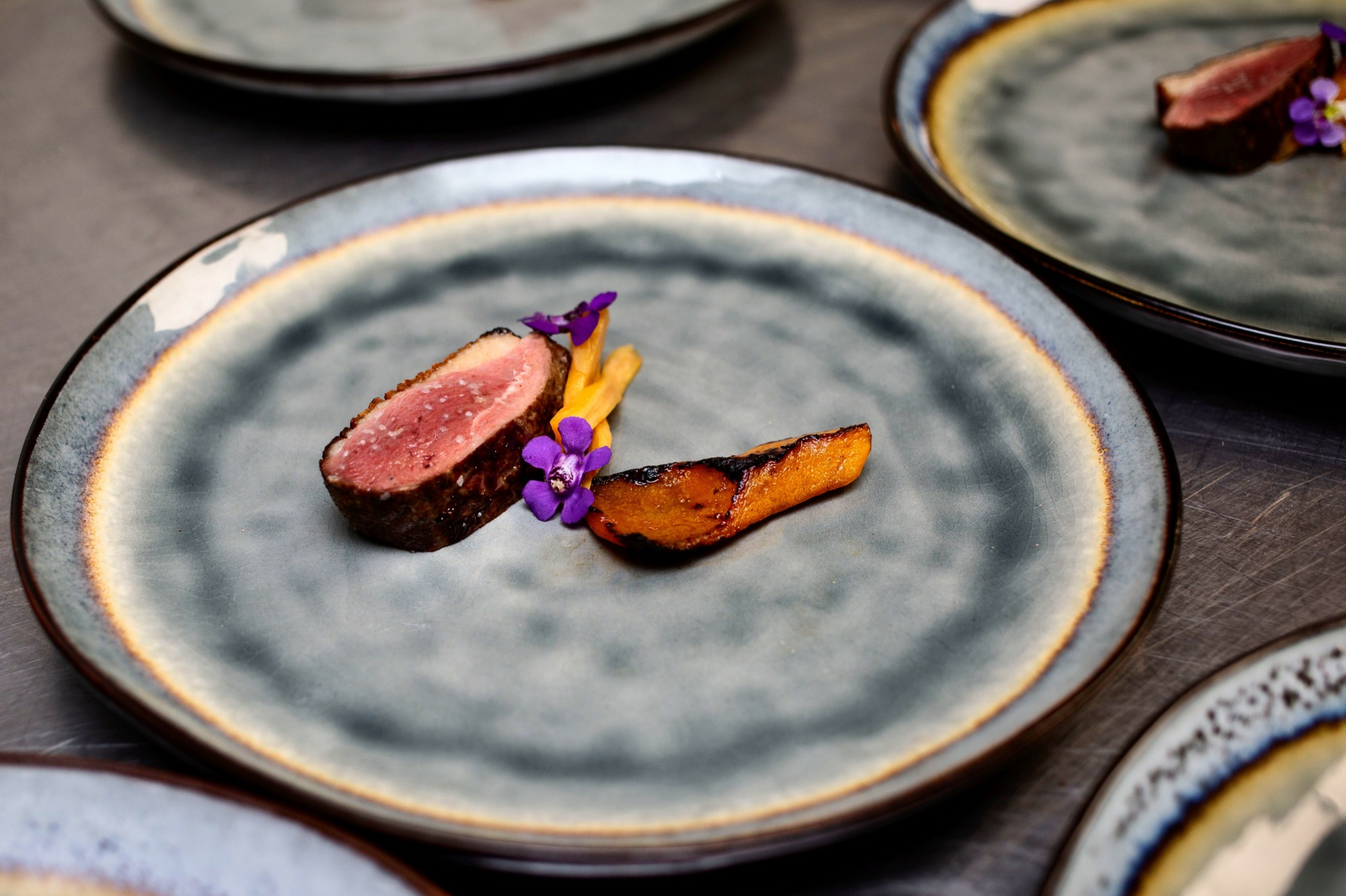
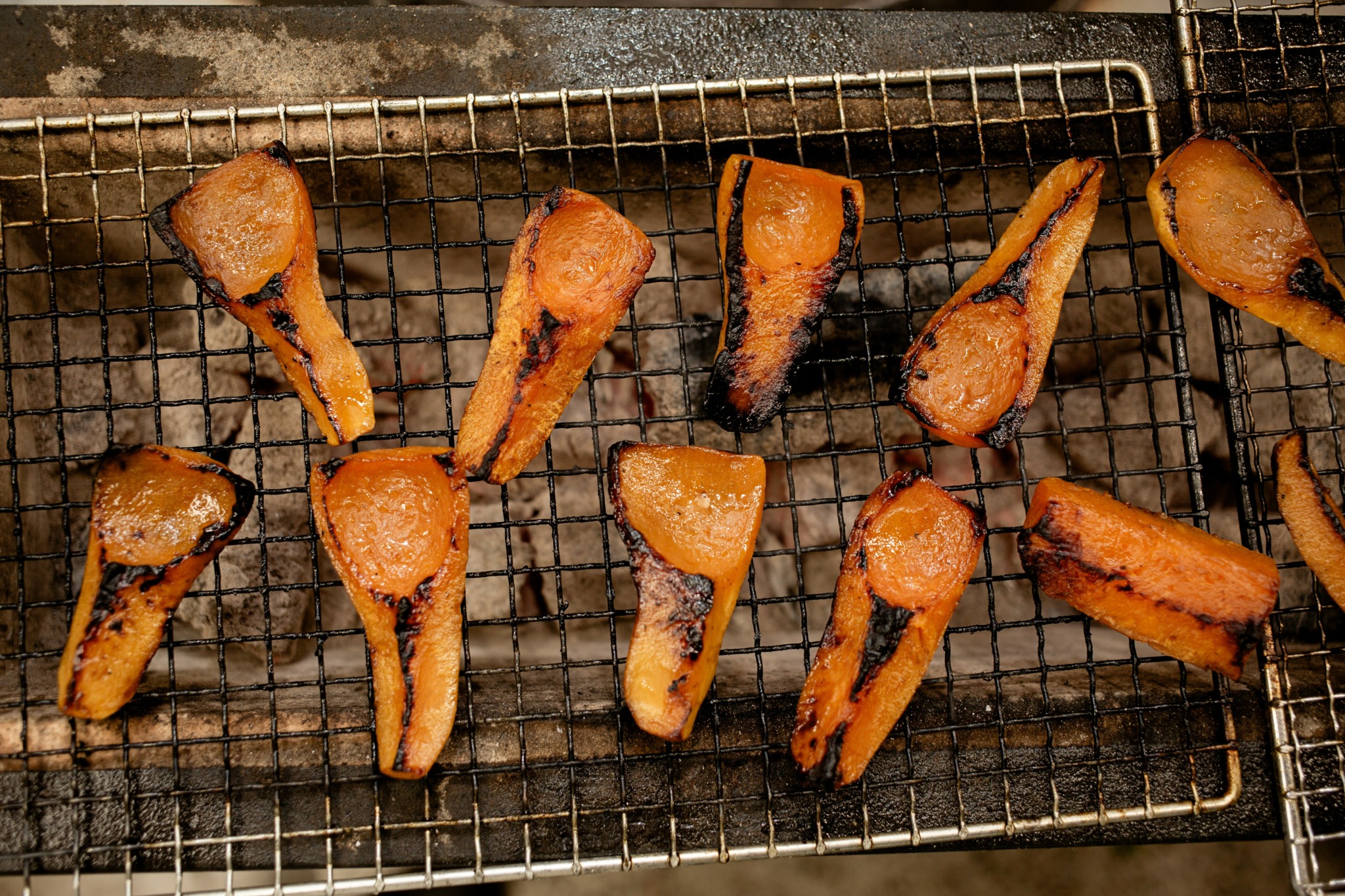
Do you have any insights you can share related to maintaining high team morale?
I used to be a hot headed, yeller in the kitchen. The best method I’ve found to maintain morale is not to force but rather to encourage desire to want to return the next day. Knowing what motivates anyone occurs on an individual basis, though I’ve found in the kitchen, it is a combination of things, be it a cocktail of encouragement and fear for example. I’ve consistently found across the board however that the best motivator for an employee is occasional acknowledgment – emphasis on occasional. Too much and the environment becomes pliant, and not enough results in an employee loses adherence to a vision.
TLDR; Acknowledge the work of a cook or team member in the kitchen and FOH, however don’t credit them so much that there isn’t a reason to continue striving.
Contact Info:
- Website: https://linktr.ee/LolaCeli
- Instagram: @lolaceli.gvl
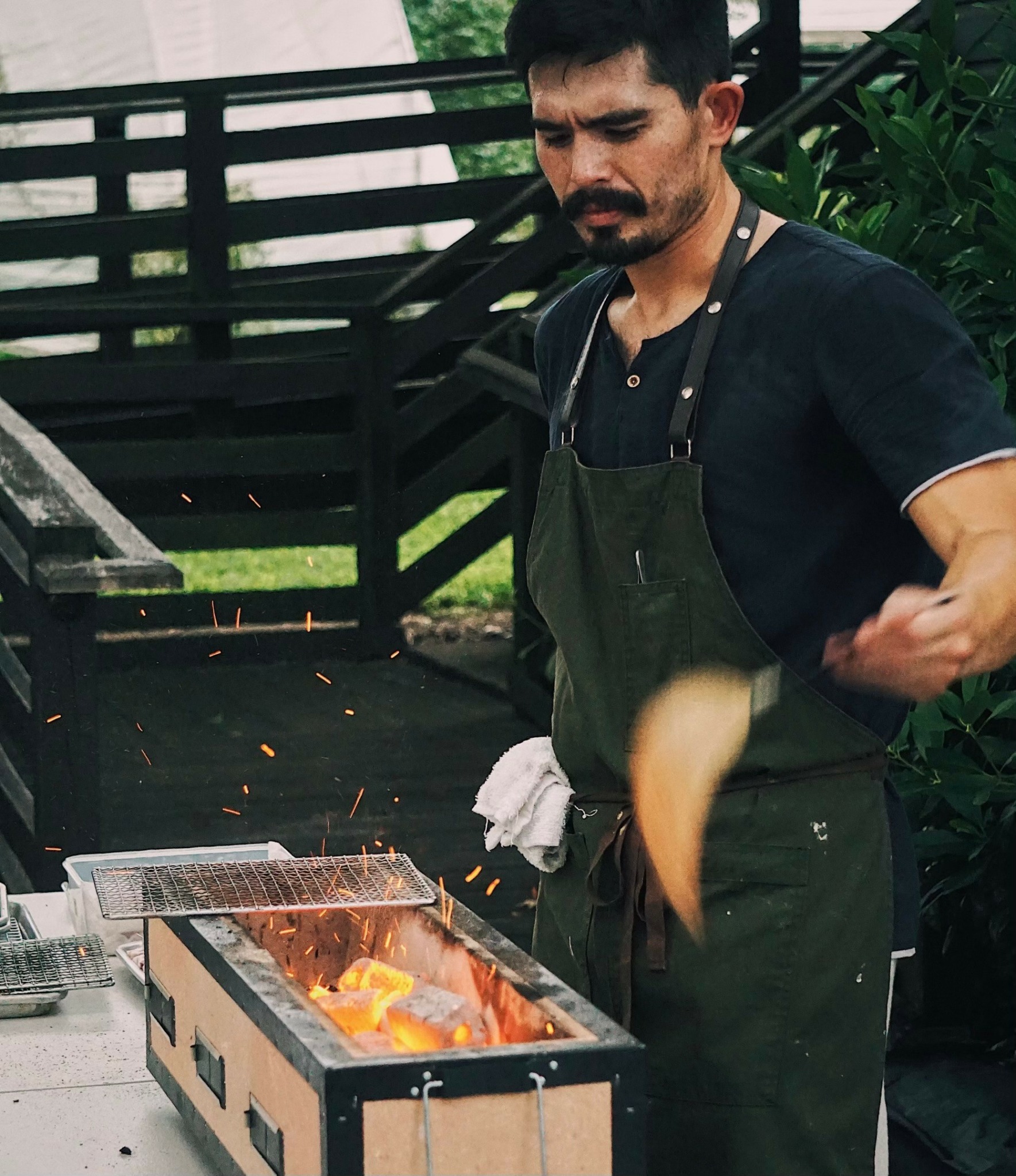
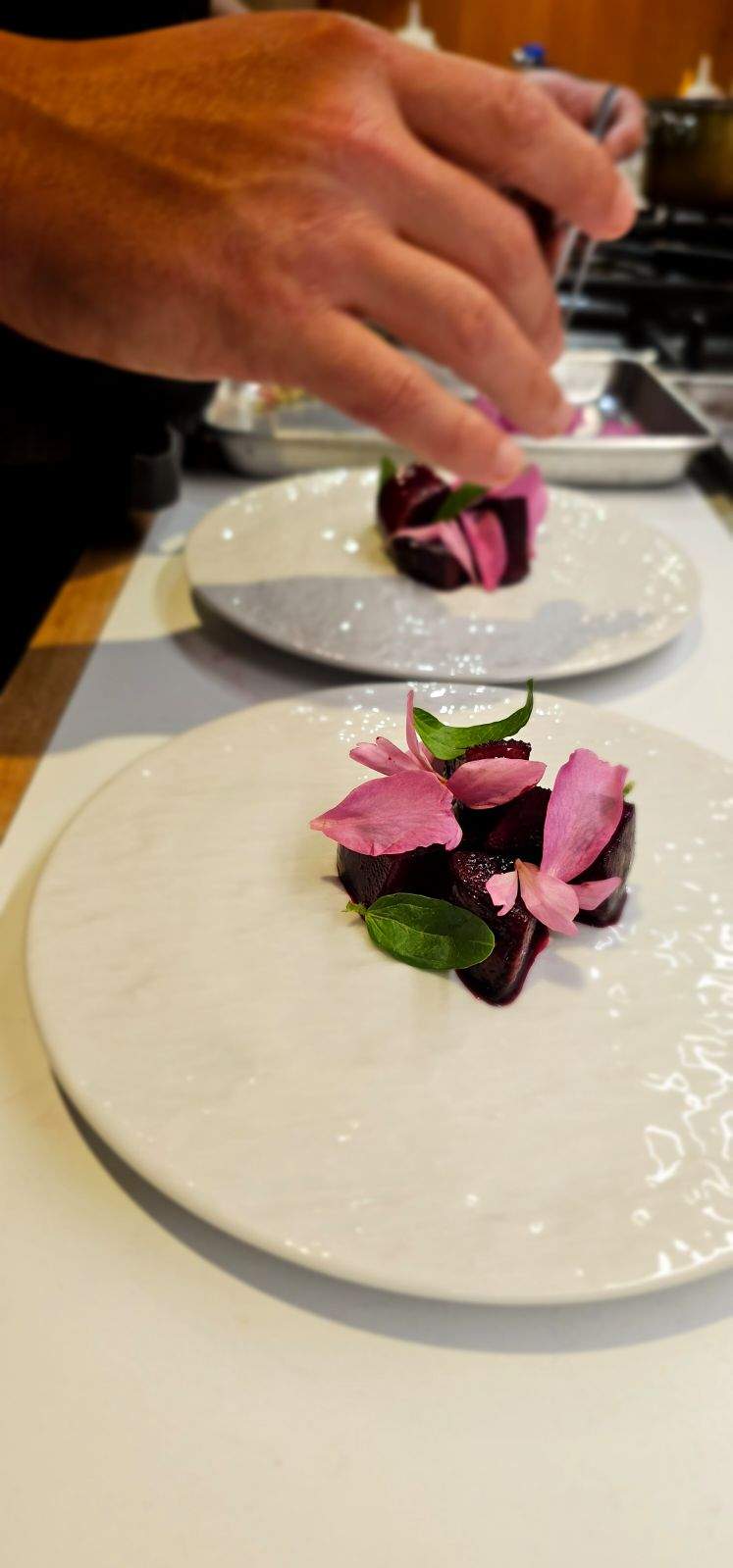
Image Credits
Elizabeth Kabakjian
Kevin Sanfilippo


